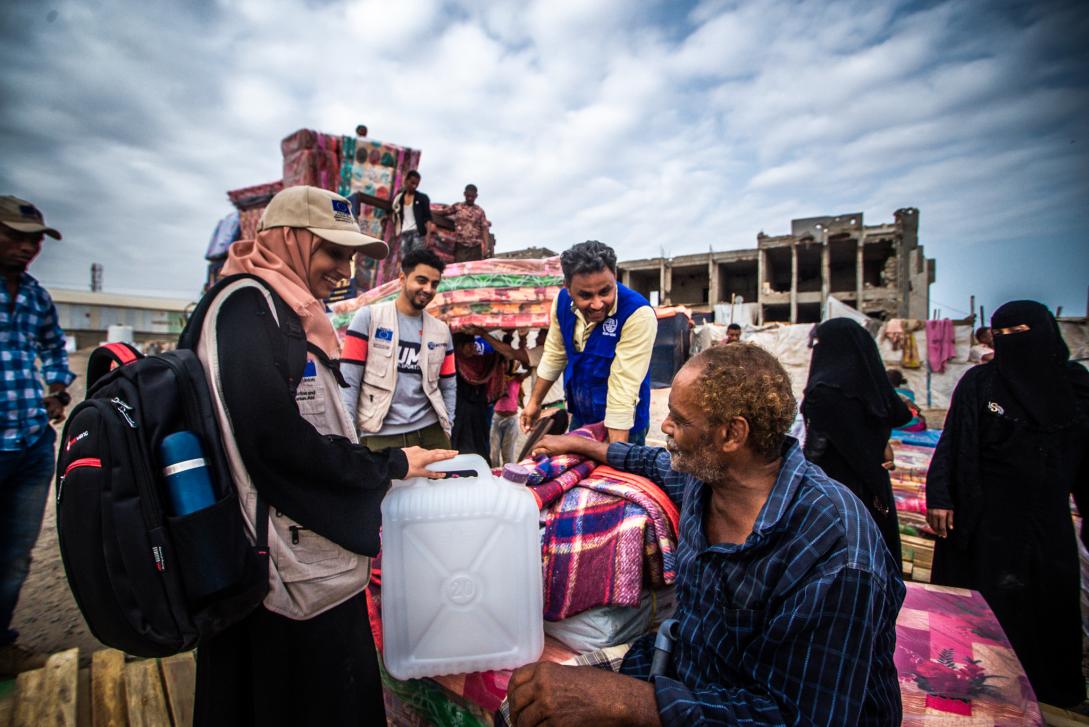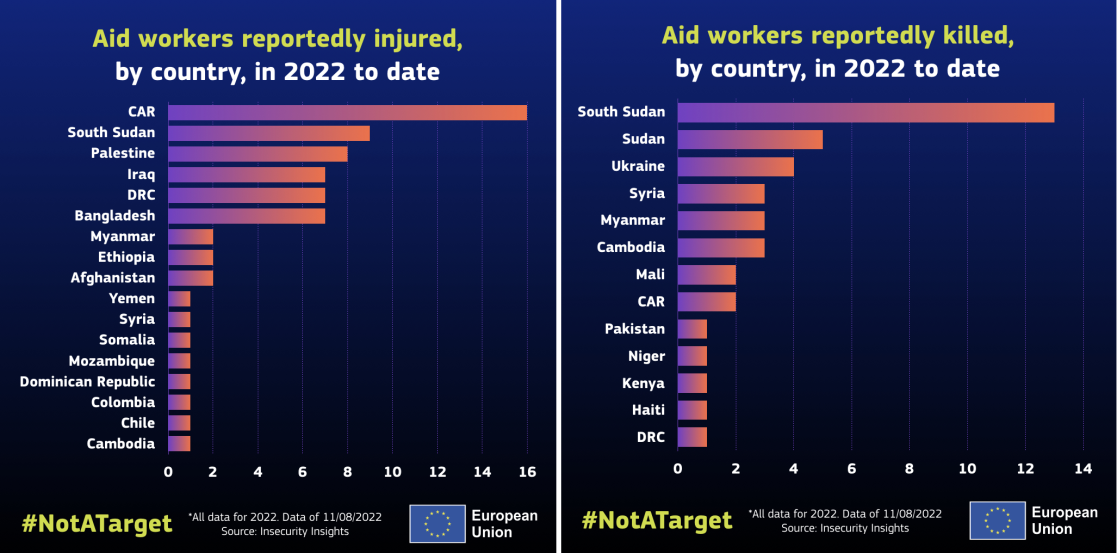World Humanitarian Day: Changing Lives, changing the world

© IOM staff, and implementing partner in a joyful moment with Abdulhakem.
Humanitarian aid represents a strong personal commitment. The actions of brave women and men have a clear positive impact on the lives of those who benefit from their courage, determination and empathy. The duties of a humanitarian worker may vary, from providing relief to those suffering from war, natural disasters or other complex issues. But their solidarity towards others is always present.
Today, the EU recalls the need to protect real-life heroes who can face threats to their lives. So far in 2022, 40 aid workers lost their lives, 68 were wounded and 52 arrested. This reality is not acceptable. Moreover, 136 cases of kidnapping have been reported.
‘The rules of war are clear. Civilians, including medical personnel and aid workers must be always protected and never targeted’ declare High Representative/Vice-President Josep Borrell and Commissioner Janez Lenarčič. ‘All parties to any conflict must respect and follow International Humanitarian Law which is not a choice, but an obligation.’

There are real-life heroes turning humanitarian aid into a reality, and this is the day to celebrate them. As Russia’s war of aggression against Ukraine unfolds, the solidarity of millions demonstrated the other side of humanity: in the midst of chaos and terror, there is also empathy and solidarity.
Jakub is one of those heroes. Working in a nongovernmental organisation in Wroclaw, Poland, he works restlessly to adapt the capacity of his organisation to respond to some of the most urgent needs of refugees coming from Ukraine. Jakub’s dedication is matched with a general sense of solidarity across the country, with an overflow of donations to centres near the border with Ukraine.
In Latvia, the youth worker Anželika has been working with the Red Cross in providing support to people fleeing from the war and arriving in the country, by giving information to people as soon as possible about how to help and where to look for information and who to contact on what issues.
From Portugal, Sónia gathered her friends and together they drove from Lisbon to Warsaw, at the beginning of the conflict, to transport essential goods and to help Ukraine families reunite in Portugal.
Russia’s invasion has not only led to skyrocketing humanitarian needs in Ukraine but had dramatic effects across the world. As millions of tonnes of grain are blocked in Ukraine, the war has worsened an already serious global food crisis, unparalleled to what we have seen before.
Russia’s war of aggression against Ukraine has consequences on a global scale, generating a serious food crisis, to which further exposes countries already vulnerable to a lack of access to resources due to conflicts, climate change and the effects of the COVID-19 pandemic. HR/VP Josep Borrell and Commissioner Janez Lenarčič launch the call to the international donor community: The EU has significantly ramped up its funding to fight the global food crisis, and we are inviting the international donor community to follow suit.
The EU’s Humanitarian work continues to be guided by four international humanitarian principles: Humanity, Neutrality, Impartiality and Independence. The EU is a strong advocate for the protection of humanitarian space. From the conflict in Syria to the food insecurity in the Sahel, the EU and its member states continue to ensure immediate response and humanitarian assistance. To demonstrate this commitment, the EU institutions and its Member States are the leading donors of humanitarian aid in the world. The humanitarian assistance funded by the EU is delivered in partnership with UN agencies, international organisations and NGOs. EU humanitarian aid covers intervention areas such as food and nutrition, shelter, healthcare, water and sanitation and education in emergencies.





